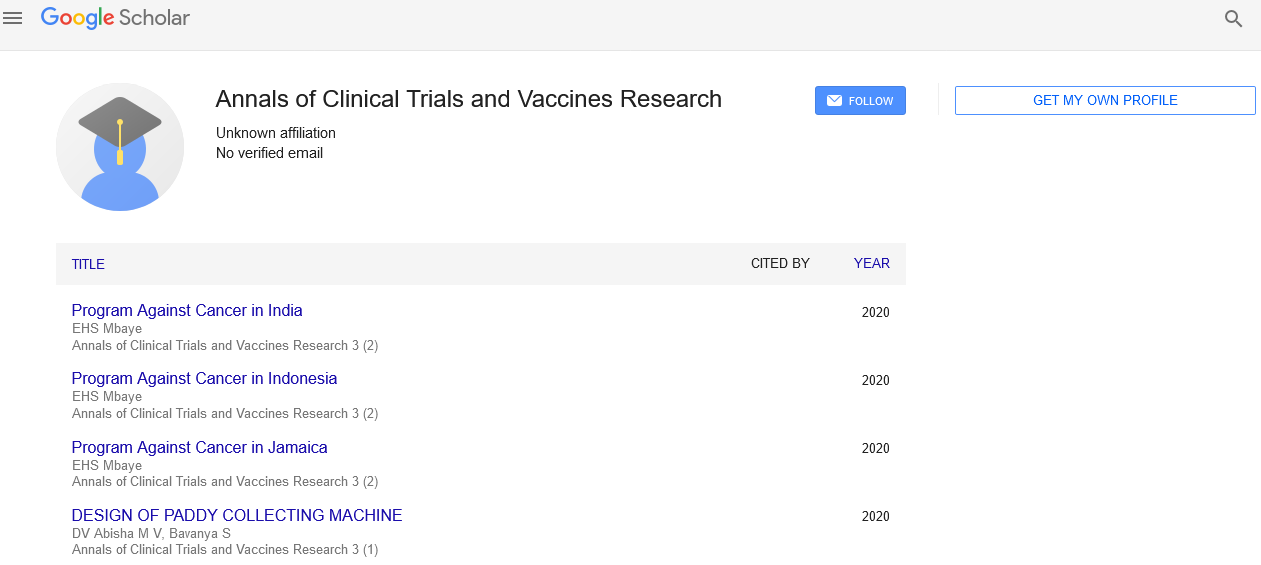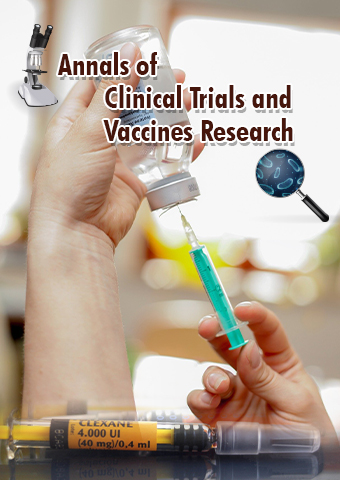Perspective - Annals of Clinical Trials and Vaccines Research (2024) Volume 14, Issue 6
Quality Control in Vaccine Development: Ensuring Safety and Efficacy
- Corresponding Author:
- Rastum Raoki
Department of Biochemistry, Zargaran University, Zargaran, Afghanistan
E-mail: raoki@gmail.com
Received: 27-Nov-2024, Manuscript No. ACTVR-24-153437; Editor assigned: 02-Dec-2024, Pre QC No. ACTVR-24-153437 (PQ); Reviewed: 16-Dec-2024, QC No. ACTVR-24-153437; Revised: 21-Dec-2024, Manuscript No. ACTVR-24-153437 (R); Published: 28-Dec-2024, DOI: 10.37532/ACTVR.2024.14(6).302-303
Introduction
Vaccines are among the most effective tools in modern medicine, preventing millions of deaths annually by bolstering immunity against infectious diseases. Behind their success lies a rigorous Quality Control (QC) framework that ensures vaccines meet stringent safety and efficacy standards. This article explores the critical role of QC in vaccine development, its methodologies, challenges, and advancements.
Description
The importance of quality control in vaccines
Vaccines undergo a multifaceted production process involving biological agents that must maintain consistency across batches. Quality control ensures:
Safety: Vaccines must be free of harmful contaminants and side effects.
Efficacy: They should elicit a robust immune response.
Raw material testing
The first step in vaccine production is testing raw materials, including biological agents like antigens and adjuvants. Materials are assessed for purity, sterility, and compliance with predefined standards. Any deviation could compromise the final product’s integrity.
In-process controls
Throughout the production process, vaccines undergo rigorous testing. This includes:
Potency tests: To ensure the antigen’s strength can provoke an immune response.
Sterility tests: To check for microbial contamination.
pH and osmolarity checks: These parameters are critical for maintaining the vaccine’s chemical stability.
Finished product testing
The final vaccine is assessed for:
Appearance: Any discoloration or sedimentation could indicate instability.
Potency and purity: Ensuring the final product retains its efficacy.
Endotoxin levels: Excess endotoxins can cause adverse reactions in recipients.
Advanced models, such as patient-derived organoids and genetically modified animals, are increasingly being used to provide more clinically relevant data.
Cold chain validation
Vaccines require strict temperature controls during storage and transportation. QC involves validating the cold chain system to prevent degradation due to temperature fluctuations.
Analytical techniques in QC
Several advanced methods are employed to ensure vaccine quality:
Mass Spectrometry (MS): Used to verify antigen composition and identify impurities.
High-Performance Liquid Chromatography (HPLC): Analyzes vaccine components for uniformity.
Flow cytometry: Evaluates cell-based vaccines by quantifying immune cells.
Next-Generation Sequencing (NGS): Ensures genetic consistency in DNA and mRNA vaccines.
These techniques offer precision and reliability, critical for detecting minute anomalies that could affect vaccine performance.
Challenges in Vaccine Quality Control
Despite advancements, QC in vaccines faces significant challenges:
Complexity of biological products: Vaccines, particularly live attenuated and recombinant types, involve intricate biological systems. Ensuring consistency across production batches is challenging due to the variability inherent in biological materials.
Regulatory diversity: Different countries have varying QC standards, making global distribution complex. Harmonizing these standards is essential for streamlined vaccine approvals.
Rapid development needs: The COVID-19 pandemic highlighted the need for accelerated vaccine development. Balancing speed with thorough QC posed a unique challenge, requiring innovative approaches like rolling reviews and emergency use authorizations.
Cost constraints: QC processes are resource-intensive. For low-income countries, ensuring affordable vaccines without compromising QC is a persistent challenge.
Advancements in QC for vaccines
Automation and AI: Automation streamlines QC processes, reducing human error and increasing efficiency.
Artificial Intelligence (AI) aids in analyzing large datasets, identifying patterns, and predicting potential issues.
Digital twins: This technology creates virtual models of vaccine production processes, enabling real-time monitoring and optimization of QC parameters.
Biomarker development: Identifying reliable biomarkers accelerates QC testing by providing rapid insights into vaccine potency and safety.
Global collaboration
Initiatives like the Coalition for Epidemic Preparedness Innovations (CEPI) have fostered international collaboration to establish uniform QC standards and share best practices.
Case Study: QC in mRNA Vaccines mRNA vaccines, such as those for COVID-19, represent a breakthrough in immunology. QC in their development includes:
Lipid Nanoparticle (LNP) assessment: Ensuring LNPs effectively deliver mRNA into cells without degradation.
Sequence verification: Using NGS to confirm the mRNA sequence aligns with the target antigen.
Stability studies: Testing formulations under various conditions to determine shelf life.
Despite their novelty, mRNA vaccines demonstrated the feasibility of maintaining robust QC during rapid development.
Conclusion
Quality control in vaccine development is indispensable for ensuring public health and trust. From raw materials to the final product, every stage is meticulously monitored to deliver safe, effective, and reliable vaccines. As science and technology advance, QC will continue to play a pivotal role in shaping the future of immunization and global health security.
By embracing innovation and collaboration, the field of vaccine QC can overcome existing challenges and pave the way for a healthier world.

